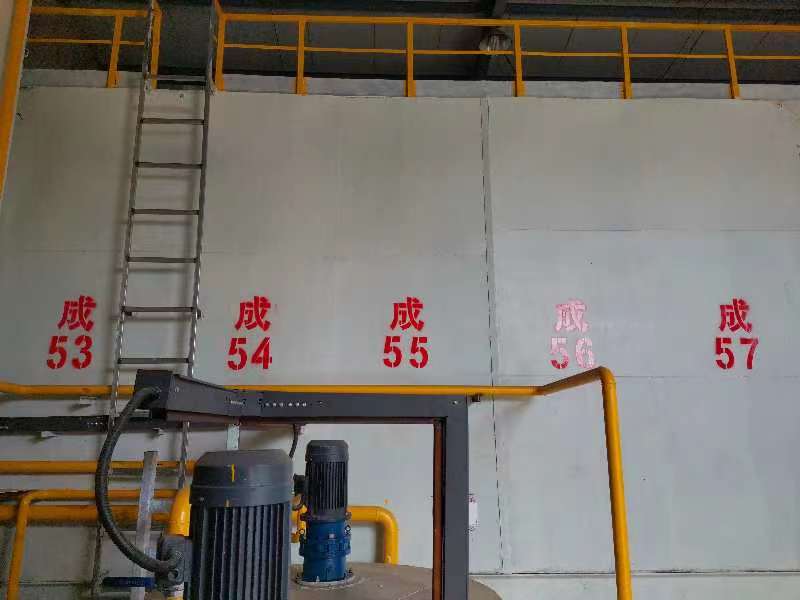Inhoudsopgave
Benefits of Using Industrial Lube Oil in Automotive Engines
Industrial lube oil plays a crucial role in the automotive industry, providing lubrication and protection to the various moving parts of an engine. This specialized oil is designed to withstand high temperatures and pressures, ensuring optimal performance and longevity of automotive engines. In this article, we will explore the applications of industrial lube oil in the automotive industry and the benefits it offers to vehicle owners.

One of the primary applications of industrial lube oil in the automotive industry is to reduce friction between moving parts. As an engine operates, metal components rub against each other, creating heat and wear. Industrial lube oil forms a protective film between these components, reducing friction and minimizing wear and tear. This not only extends the lifespan of the engine but also improves fuel efficiency and overall performance.
In addition to reducing friction, industrial lube oil also helps to dissipate heat generated during engine operation. Automotive engines can reach high temperatures, especially during prolonged use or under heavy loads. Industrial lube oil absorbs and carries away heat from the engine, preventing overheating and potential damage to critical components. This thermal stability is essential for maintaining the reliability and efficiency of automotive engines.
Furthermore, industrial lube oil acts as a cleaning agent, removing contaminants and debris from the engine. Over time, dirt, dust, and other particles can accumulate in the engine, leading to Clogs and reduced performance. Industrial lube oil contains Detergents and dispersants that help to clean the engine and keep it running smoothly. By preventing the buildup of harmful deposits, industrial lube oil ensures optimal engine performance and longevity.
Another important application of industrial lube oil in the automotive industry is corrosion protection. Automotive engines are exposed to a variety of environmental factors, such as moisture and Salt, which can cause corrosion and rusting of metal components. Industrial lube oil forms a protective barrier on the surface of these components, preventing moisture and other corrosive agents from causing damage. This corrosion protection is essential for maintaining the structural integrity and reliability of automotive engines.
Moreover, industrial lube oil helps to seal gaps and prevent leaks in the engine. Automotive engines contain numerous Seals and Gaskets that can degrade over time, leading to oil leaks and other issues. Industrial lube oil contains additives that help to rejuvenate these seals, ensuring a tight seal and preventing leaks. This seal conditioning property of industrial lube oil is essential for maintaining the integrity of the engine and preventing costly repairs.
In conclusion, industrial lube oil plays a vital role in the automotive industry, providing lubrication, protection, and performance benefits to vehicle owners. By reducing friction, dissipating heat, cleaning the engine, protecting against corrosion, and sealing gaps, industrial lube oil ensures the optimal operation and longevity of automotive engines. Vehicle owners can benefit from using high-quality industrial lube oil in their vehicles, ensuring reliable performance and extending the lifespan of their engines.
Importance of Proper Lubrication in Automotive Machinery
Industrial lube oil plays a crucial role in the automotive industry, ensuring the smooth operation of machinery and prolonging the lifespan of critical components. Proper lubrication is essential for reducing friction, heat, and wear in moving parts, ultimately improving the overall performance and efficiency of vehicles. In this article, we will explore the various applications of industrial lube oil in the automotive sector and highlight its importance in maintaining the health of automotive machinery.
One of the primary applications of industrial lube oil in the automotive industry is in the lubrication of engines. Engine oil is specifically formulated to provide lubrication to the various moving parts within an engine, such as pistons, crankshafts, and camshafts. By reducing friction between these components, engine oil helps to minimize wear and tear, prevent overheating, and improve fuel efficiency. Regular oil changes are essential to ensure that the engine remains properly lubricated and functions optimally.
In addition to engines, industrial lube oil is also used in transmissions, differentials, and other mechanical components of vehicles. Transmission fluid, for example, is designed to lubricate gears, Bearings, and other moving parts within the transmission system. It helps to facilitate smooth gear shifts, reduce noise and vibration, and prevent premature wear. Similarly, differential oil is used to lubricate the gears and bearings in the differential, ensuring that power is transferred efficiently from the engine to the wheels.
Industrial lube oil is also used in other automotive applications, such as steering systems, brakes, and suspension components. Power steering fluid, for instance, helps to lubricate the steering rack and pump, allowing for easy and precise steering control. Brake fluid is essential for transferring hydraulic pressure from the brake pedal to the Brake Calipers, enabling effective braking performance. Suspension fluid, on the other hand, helps to lubricate Shock Absorbers and Springs, providing a smooth and comfortable ride.
Proper lubrication is critical for the longevity and reliability of automotive machinery. Without adequate lubrication, moving parts can wear out quickly, leading to costly repairs and downtime. Industrial lube oil helps to protect components from excessive friction, heat, and corrosion, extending their lifespan and reducing the risk of mechanical failures. Regular maintenance and oil changes are essential to ensure that vehicles remain properly lubricated and perform at their best.
In conclusion, industrial lube oil plays a vital role in the automotive industry, providing essential lubrication to engines, transmissions, and other mechanical components. Proper lubrication is crucial for reducing friction, heat, and wear in moving parts, improving performance and efficiency, and prolonging the lifespan of automotive machinery. By understanding the applications of industrial lube oil and the importance of proper lubrication, automotive professionals can ensure that vehicles operate smoothly and reliably for years to come.
How Industrial Lube Oil Enhances Performance and Efficiency in Vehicles
Industrial lube oil plays a crucial role in the automotive industry, where it is used to enhance the performance and efficiency of vehicles. This specialized lubricant is designed to withstand the high temperatures and pressures that are common in automotive engines, transmissions, and other critical components. By reducing friction and wear, industrial lube oil helps to extend the lifespan of automotive parts and improve overall vehicle performance.
One of the key applications of industrial lube oil in the automotive industry is in engine lubrication. The engine is the heart of any vehicle, and proper lubrication is essential to ensure smooth operation and prevent premature wear and tear. Industrial lube oil is formulated to provide superior protection against friction and heat, which can help to reduce engine wear and extend the life of critical components such as pistons, bearings, and camshafts.
In addition to engine lubrication, industrial lube oil is also used in transmissions to ensure smooth shifting and efficient power transfer. The transmission is responsible for transferring power from the engine to the wheels, and proper lubrication is essential to prevent wear and ensure reliable performance. Industrial lube oil helps to reduce friction between moving parts in the transmission, which can improve fuel efficiency and extend the lifespan of gears, bearings, and other components.
| Logo | Product name |
| www.mogenoils.com | Lubes |
Industrial lube oil is also used in other automotive applications, such as steering systems, brakes, and suspension components. In steering systems, industrial lube oil helps to reduce friction in the steering rack and ensure smooth, responsive steering. In brake systems, industrial lube oil is used to lubricate calipers and pistons, which can help to prevent sticking and ensure consistent braking performance. In suspension components, industrial lube oil helps to reduce friction between moving parts, which can improve ride comfort and handling.
Overall, the applications of industrial lube oil in the automotive industry are vast and varied. From engine lubrication to transmission fluid, industrial lube oil plays a critical role in enhancing vehicle performance and efficiency. By reducing friction and wear, industrial lube oil helps to extend the lifespan of automotive parts and improve overall vehicle reliability. Whether you are driving a car, Truck, or motorcycle, industrial lube oil is essential for keeping your vehicle running smoothly and efficiently.
In conclusion, industrial lube oil is a vital component in the automotive industry, where it is used to enhance performance and efficiency in vehicles. From engine lubrication to transmission fluid, industrial lube oil plays a critical role in reducing friction and wear, extending the lifespan of automotive parts, and improving overall vehicle reliability. Whether you are a professional mechanic or a car enthusiast, understanding the applications of industrial lube oil in the automotive industry is essential for maintaining and optimizing the performance of your vehicle.

